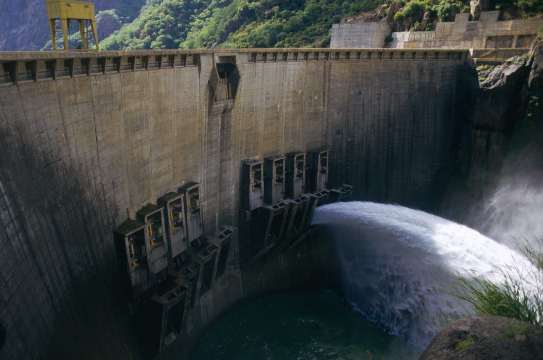Mozambique is set to end its hydropower supply to South Africa’s State-owned electricity utility, posing risks for the continent’s most industrialised economy and threatening the viability of Africa’s second-largest aluminum smelter.
The country’s energy transition strategy, which has been seen by Bloomberg, outlines Mozambique’s plan to secure the 1,150 megawatts of power it sells to South Africa for its own use.
YOU MAY ALSO LIKE: Godongwana Debunks Claims Of Banks Funding Terrorism
In the short term, Mozambique’s priority is to repatriate electricity from the Hidroelectrica de Cahora Bassa, which is currently exported to South Africa.
The contract for this arrangement is set to end on December 31, 2030, according to the government’s strategy document.
However, the decision creates challenges for both South Africa, which is grappling with power cuts that hinder economic growth, and South32 Ltd., the operator of the Mozal aluminum smelter near Maputo, Mozambique’s capital.
Mozal relies on electricity purchased from South African utility Eskom Holdings to power its operations. The smelter requires approximately 900 MW of electricity for its aluminum production, which is marketed as being made with clean energy.
However, because Mozambique’s grid is not connected nationally, Mozal cannot directly receive power supply from Cahora Bassa. Instead, the electricity is transmitted over 1,400 km of transmission lines to Eskom in South Africa, which then sells power to Mozal.
The sales arrangement has been in place since 1979, but disruptions to the supply in the past, such as when transmission lines were damaged by violent storms, have exacerbated power cuts in South Africa.
The Mozambican government highlights the affordability and cleanliness of electricity from Hidroelectrica de Cahora Bassa in its strategy document and acknowledges that important decisions need to be made regarding the end-destination of clean energy trading.
Mozambique intends to promote the use of its renewable energy in industrial parks to add value to the production of green minerals like lithium and graphite. Eskom, however, claims to be unaware of Mozambique’s desire to not renew the contract.
If the contract is not renewed, Eskom may need to source power from alternative suppliers, and South32 will need to find another source of electricity, preferably from renewable sources, to avoid European Union taxes on carbon-intensive goods.
South32’s supply deal with Eskom is set to expire in 2026. The company has formed a working group with Eskom, HCB, and the Mozambican government to extend the contract, as there are currently no viable alternative suppliers of renewable energy at the necessary scale.
While Mozal purchases power from Eskom, which primarily relies on coal for electricity generation, there is no guarantee that it is the same electricity transmitted from Cahora Bassa. South32 has also proposed ring-fencing power from South Africa’s sole nuclear plant for its Hillside aluminium smelter.
Mozal, which is majority-owned by South32, contributes to 4% of Mozambique’s GDP and employs around 1,000 people.
YOU MAY ALSO LIKE: Former Deputy President Phumzile Mlambo-Ngcuka Joins Mercedes-Benz SA Board
The government believes that the plant’s employment numbers are insufficient, and the benefits in the form of taxes are limited. The government is calling for a unified electricity grid to prevent a situation where the largest electricity producer exports energy while the largest consumer imports it.
Eskom is exploring the option of importing power from other sources after a recent disagreement over price led to the cancellation of a plan to import an additional 100 MW of electricity from Mozambique.










